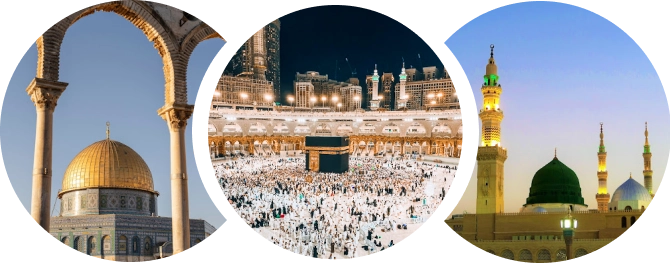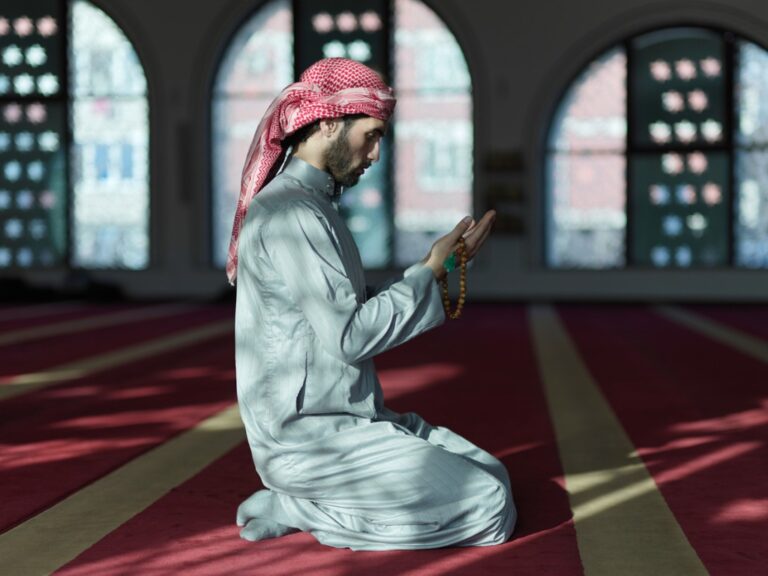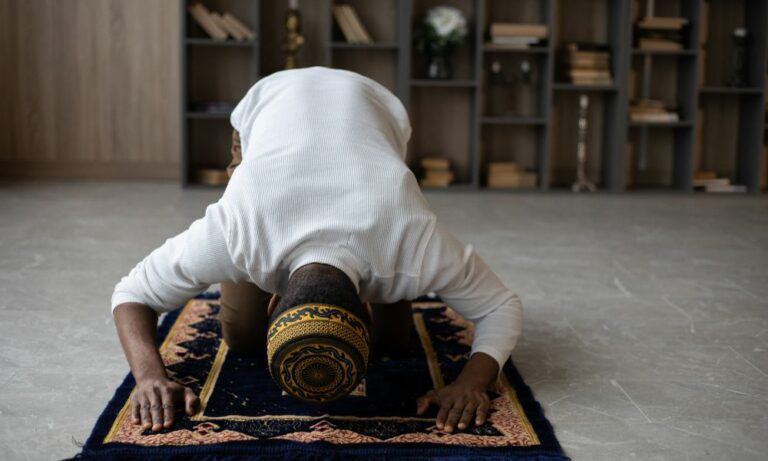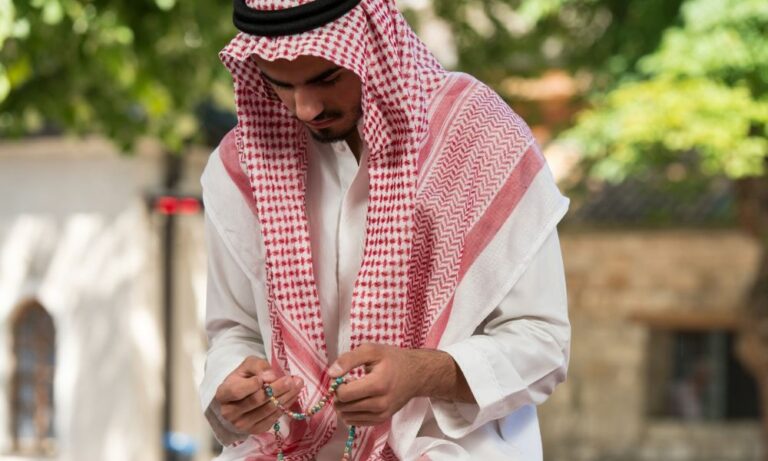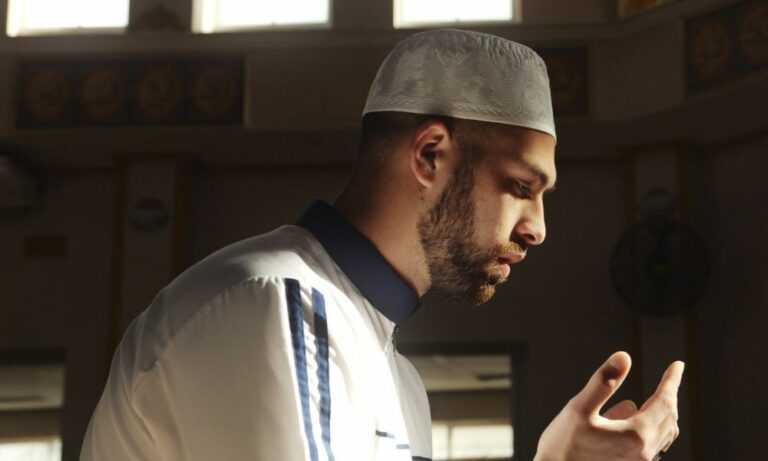Significance and Benefits of Dhuhr Prayer: Unlocking Spiritual Rewards!
Dhuhr prayer is important in Islam because it is one of the five daily obligatory prayers. It serves as a spiritual and psychological break as the midday prayer.
It enables Muslims to reconnect with Allah SWT and seek guidance and blessings while going about their daily lives. We not only fulfill our religious obligations by performing Dhuhr prayer, but we also gain numerous benefits that improve our lives and well-being.
As we delve deeper into the significance of Dhuhr prayer, we hope to inspire Muslims worldwide to remain committed to this life-enhancing practice.
The Importance and Virtue of Dhuhr Prayer
Hadith and Quranic Verses About Dhuhr
A House In Paradise
مَنْ ثَابَرَ عَلَى اثْنَتَىْ عَشْرَةَ رَكْعَةً بَنَى اللَّهُ عَزَّ وَجَلَّ لَهُ بَيْتًا فِي الْجَنَّةِ أَرْبَعًا قَبْلَ الظُّهْرِ وَرَكْعَتَيْنِ بَعْدَ الظُّهْرِ وَرَكْعَتَيْنِ بَعْدَ الْمَغْرِبِ وَرَكْعَتَيْنِ بَعْدَ الْعِشَاءِ وَرَكْعَتَيْنِ قَبْلَ الْفَجْرِ
“Whoever persists in praying twelve rak’ahs each day and night, Allah, the Mighty and Sublime, will build for him a house in Paradise: Four before Zuhr and two after Zuhr, two rak’ahs after Maghrib, two rak’ahs after Isha’ and two rak’ahs of Fajr.”
Wipes out bad Deeds
وَأَقِمِ الصَّلَاةَ طَرَفَيِ النَّهَارِ وَزُلَفًا مِّنَ اللَّيْلِ ۚ إِنَّ الْحَسَنَاتِ يُذْهِبْنَ السَّيِّئَاتِ ۚ ذَٰلِكَ ذِكْرَىٰ لِلذَّاكِرِينَ
Establish prayer at both ends of the day [dawn (Fajr) and afternoon (Zuhr/Asr)] and in the early part of the night (Maghrib/Isha). Surely good deeds wipe out evil deeds. That is a reminder for the mindful. (Hud 11:114)
The Four Rakats Before Dhuhr
‘Abdullah bin As-Sa’ib (R.A) reported: The Messenger of Allah (PBUH) used to perform four Rak’ah prayer after the declining of the sun before Zuhr prayer and would say,
إنها ساعة تفتح فيها أبواب السماء، فأحب أن يصعد لي فيها عمل صالح
“This is an hour at which the gates of heaven are opened, and I like that my good deeds should rise to heaven at that time.”
Strengthens Our Connection With Allah (SWT)
Dhuhr prayer helps us reconnect with Allah SWT during our hectic daily routines. It reminds us of Allah’s presence and keeps us focused on our Islamic values. According to the Living Hadith, this prayer also provides the opportunity to gain multiplied rewards.
Our holy book, the Quran, emphasizes the importance of prayer by saying,
“Indeed, prayer prohibits immorality and wrongdoing…” (Quran, 29:45).
This powerful verse emphasizes the transformative power of prayers, including Dhuhr, in purifying our souls and protecting us from sinful behavior.
What’s more exciting is that, in addition to spiritual benefits, Dhuhr prayer has tangible physical and mental benefits for those who practice it on a regular basis. According to one study, regular Islamic prayers can improve an individual’s health by lowering stress and anxiety while increasing focus and tranquillity.
Dhuhr Prayer in Relation to Other Salat
We’re excited to talk about the importance and benefits of Dhuhr prayer in comparison to other Islamic prayers!
Dhuhr prayer, also known as the midday prayer, is one of Islam’s five daily obligatory prayers (Salat). It consists of four Rakats and is performed after the sun has passed its zenith. Let’s compare and contrast it with other prayers like Fajr, Asr, Maghrib and Isha.
Fajr
The first daily prayer, performed before sunrise, holds special significance from both a worldly and an Islamic standpoint.
The two sunnahs of Fajr, according to Prophet Muhammad (pbuh), are superior to the entire world and everything it contains.
- It strengthens our relationship with Allah SWT.
- It weakens our nafs (desires).
- It improves a person’s discipline.
- It provides us with numerous health benefits.
Asr
Asr prayer, on the other hand, takes place in the afternoon, as the sun begins to set from its zenith. It is extremely valuable, and Prophet Muhammad PBUH defined its significance in the following hadith:
عن بريدة بن الحصيب -رضي الله عنه- قال: قال رسول الله -صلى الله عليه وسلم-: «من تَرَكَ صلاةَ العصرِ فقد حَبِطَ عَمَلُهُ»
Buraydah ibn al-Husayb (may Allah be pleased with him) reported that the Messenger of Allah (may Allah’s peace and blessings be upon him) said: “If anyone abandons the ‘Asr prayer, their deeds will be rendered null and void.”
Maghrib
Maghrib prayer occurs shortly after sunset and marks the beginning of the evening. This prayer, like Fajr, should not be delayed because it is believed that those who perform it on time gain access to the gates of heaven. Timely prayer serves as a reminder of our submission to Allah (SWT) and obedience to His commands.
Isha
The final of the daily obligatory prayers, Isha is performed after twilight fades and darkness falls. This prayer helps us end our day with gratitude and devotion, reflecting on our daily actions and asking Allah (SWT) for forgiveness for our shortcomings.
Optional Prayers
There are optional prayers (Sunnah and voluntary prayers) in addition to the five obligatory prayers. They can be carried out in order to obtain additional rewards and blessings from Allah (SWT).
فقد جاء في الحديث عن أبي هريرة عن النبي صلى الله عليه وسلم قال: إن أول ما يحاسب الناس به يوم القيامة من أعمالهم الصلاة، قال: يقول ربنا عز وجل لملائكته، وهو أعلم: انظروا في صلاة عبدي أتمها أم نقصها، فإن كانت تامة، كتبت له تامة، وإن كان انتقص منها شيئًا، قال: انظروا، هل لعبدي من تطوع؟
It came in the hadith on the authority of Abu Hurairah on the authority of the Prophet, may God’s prayers and peace be upon him, who said: The first thing that people will be held accountable for on the Day of Resurrection of their deeds is prayer. I wrote it complete for him, and if something was detracted from it, he said: Look, does my slave have any voluntary?
(at-Tirmidhi, classed as Sahih)
The preceding Hadith emphasizes the significance of Sunnah prayers, which the Prophet (PBUH) regularly performed. Two Rakats before Fajr prayer and two Rakats after Maghrib prayer are examples of these. These voluntary prayers will compensate for anything lacking in obligatory Salah on the day of judgment.
Spiritual Benefits
Praying in Congregation
The Dhuhr prayer, which is frequently performed in congregation, allows us to connect with our fellow Muslims, strengthening our bonds and sense of community. When we pray together, we receive 27 times more rewards than when we pray alone.
Helps in Avoiding Sins
During Dhuhr prayer, we seek guidance from the teachings of Prophet Muhammad (PBUH) and strive to emulate him. These lessons inspire good deeds that help us grow spiritually. The Quran emphasizes the importance of regular prayers, including Dhuhr, in avoiding sinful acts and remaining on the righteous path.
Makes Us More Content
Dhuhr prayer also reminds us of our connection to Allah (SWT). By doing so, we remind ourselves of our place in the world and remain humble, anticipating heaven’s greatness. We become more content and appreciative in our daily lives by expressing gratitude to Allah (SWT) through prayer, while also fostering a deeper spiritual bond.
Dhuhr Prayer’s Blessings
The spiritual benefits of Dhuhr prayer cannot be overstated. Our worship brings us closer to forgiveness and paradise. Furthermore, the act of praying Dhuhr creates a refuge from the temptations of the material world, assisting us in maintaining our faith and remaining resilient on the path to salvation.
So, let us treasure the Dhuhr prayer and use it for spiritual and psychological nourishment, seeking a deeper connection with Allah (SWT) and our Muslim brothers and sisters!
Psychological Benefits
Dhuhr is a Refreshing Break
The Dhuhr prayer provides a welcome respite from our daily activities. We rejuvenate our minds and bodies by devoting time to this spiritual practice, which improves our overall mental health. Our relationship with Allah (SWT) is strengthened, resulting in a greater sense of fulfillment and purpose in life.
A Nap Fixes All
After Dhuhr prayer, Prophet Muhammad (PBUH) used to take a nap.
Taking a nap in the afternoon can provide numerous benefits, including:
- Reduced fatigue
- Increased alertness
- Improved mood
- Relaxation
- Improved performance, including faster reaction time and better memory
An Amazing Survey About Afternoon Breaks
According to a survey, It’s worth noting that 81% of hybrid/remote workers and 77% of in-office workers agree that lunch breaks improve job performance.
Muslims already have this advantage!
Significance of Dhuhr Prayer Timing
The sun is at its highest point during this prayer period, and it is usually the hottest time of day. We demonstrate the discipline and consistency required to stay close to Allah (SWT) by praying at this time.
The midday sun also serves as a reminder of life’s harshness and the eternal comfort of the afterlife. We acknowledge our difficulties and strengthen our faith in Allah’s grace and mercy by praying during the hottest part of the day.
Finally, the Dhuhr prayer timing promotes Muslim unity and a sense of community. Millions of Muslims gather around the world at the same time to perform this prayer, which serves as an inspiring reminder of the vast diversity and strength of the Muslim Ummah.
Reward and Punishment
Accumulation of Real Wealth
The accumulation of good deeds is one of the fantastic rewards of Dhuhr prayer. Imagine our surprise when we learn that our consistent performance of daily prayers, especially Dhuhr, has earned us a higher rank in Jannah! The Prophet (PBUH) taught us that praying consistently opens the gates of Heaven, bringing us closer to Allah’s mercy and guidance.
Protection From Hell
But hold on, there’s more! Did you know that Dhuhr prayer can keep you safe from Hell? Indeed, we are protected from the torment of Hell by sincere prayer. We are reminded that consistent prayers, such as Dhuhr, serve as safeguards, keeping us away from sinful paths.
“ مَنْ حَافَظَ عَلَى أَرْبَعِ رَكَعَاتٍ قَبْلَ الظُّهْرِ وَأَرْبَعٍ بَعْدَهَا حَرَّمَهُ اللَّهُ عَلَى النَّارِ ”
“Whoever maintains four Rak’ah before Az-Zuhr and four after it, Allah makes him prohibited for the Fire.” (Tirmidhi 428)
Leads To Spiritual Growth
What an incredible benefit Dhuhr prayer provides us! This daily act of worship, like Hajj and Umrah, cleanses our hearts and souls, resulting in spiritual growth and divine guidance. In addition, our beloved Dhuhr prayer can serve as a form of intercession for us, resulting in ultimate forgiveness and a blissful abode in Paradise.
Protection and Guidance Of Allah (SWT)
In addition to all of these wonderful benefits, Dhuhr prayer provides us with Allah’s (SWT) protection and guidance. We demonstrate our submission to God and unwavering faith by dedicating ourselves to this prayer, and in return, Allah (SWT) blesses our lives with countless bounties.
So let us continue to pray Dhuhr with zeal and excitement, knowing that each prayer is a step closer to abundant rewards, spiritual growth, and a higher rank in Paradise. We can truly reap the benefits of Dhuhr prayer with Allah’s guidance and protection.
Conclusion
Dhuhr prayer not only fulfills our religious obligations, but it also has numerous physical, mental, and spiritual benefits.
Incorporating Dhuhr prayer into our daily lives assists us in managing stress and maintaining a strong connection with Allah (SWT), thereby improving our well-being. The benefits are even supported by scientific research, as a review of the literature indicates that people who pray have lower blood pressure than those who do not.
By making time for Dhuhr prayer, we remind ourselves of the importance of our faith while taking a break from our hectic lives. This act of mindfulness keeps us grounded and promotes inner peace.
Frequently Asked Questions
What makes Dhuhr prayer so important?
We believe that the Dhuhr prayer is very important in Islam because it is one of the five daily prayers that Muslims must perform. This midday prayer breaks up our daily routine and allows us to refocus our intentions and seek connection with Allah (SWT). We honor our commitment to our faith and nurture our spiritual growth by consistently observing Dhuhr.
How does Dhuhr impact our daily lives?
Dhuhr prayer has the ability to ground and center us in our daily lives. This midday prayer serves as a reminder to pause and renew our intention to live a good and purposeful life in the midst of the hustle and bustle. It also aids in the establishment of healthy routines and contributes to our overall well-being and emotional stability.
What are the spiritual benefits of praying Dhuhr?
The spiritual advantages of praying Dhuhr are enormous! This prayer enables us to keep a meaningful relationship with Allah (SWT), seeking His guidance and blessings in all aspects of our lives. Furthermore, it assists us in achieving inner peace and tranquillity by detaching from worldly concerns and focusing on our spiritual well-being. We continuously nurture our faith and develop our connection with the divine through Dhuhr.
How does Dhuhr prayer build discipline in Muslims?
Consistently performing Dhuhr prayer aids in the development of discipline and the strengthening of our commitment to Islam. We demonstrate a sense of priority and dedication to our faith by devoting this time each day. Furthermore, the consistency of this practice allows us to form positive habits, which benefits other aspects of our lives.
What are the physical advantages of praying Dhuhr?
Dhuhr not only has spiritual benefits, but it also has physical benefits! Praying entails specific movements and postures that engage various muscle groups in the body. Regularly performing the prayer can aid in the development of flexibility, balance, and coordination. Taking a Dhuhr break can also provide mental and emotional benefits, as it allows us to recharge and refocus.
What does Dhuhr signify in the daily Muslim routine?
Dhuhr is an important part of the daily Muslim routine, representing faith and the recognition of Allah’s importance in all aspects of life. It is a time for reflection, connection, and discipline, allowing us to keep our spiritual well-being in the forefront of our minds. We strengthen our connection with Allah (SWT) and enrich our lives by observing Dhuhr on a daily basis.
The Importance and Benefits of Dhuhr Prayer: Unlocking Spiritual Rewards!
The noon prayer is important in Islam because it is one of the five obligatory prayers. It serves as a spiritual and psychological break, like the noon prayer. It enables Muslims to reconnect with God Almighty and seek guidance and blessings while going about their daily lives. Not only do we fulfill our religious obligations by performing the noon prayer, but we also obtain many benefits that improve our lives and well-being. As we delve deeper into the importance of the noon prayer, we hope to inspire Muslims around the world to remain committed to this life-enhancing practice.The importance and virtue of the noon prayer
Hadiths and Quranic verses about noon
A home in heaven
Whoever perseveres in twelve rak'ahs, God Almighty will build for him a house in Paradise, four before noon, two rak'ahs after noon, and two rak'ahs after noon Maghrib prayer, two rak’ahs after Isha’, and two rak’ahs before dawn
“Whoever memorizes twelve rak’ahs per day and night, God Almighty will build a house for him in Paradise: four before noon, two in the afternoon, two after sunset, and two after it.” dinner and the two rak’ahs of dawn.” (Sunan al-Nisa’i 1795)expiates bad deeds
And establish prayer at the two ends of the day and at the approach of the night. Verily, good deeds remove evil deeds. This is a reminder to those who remember.
Perform the prayer at the two ends of the day [Fajr (Fajr) and Asr (Dhuhr/Asr)] and at the beginning of the night (Maghrib/Isha). Good deeds outweigh bad ones. That's a ticket to the wise. (Hud 11:114)The four rak'ahs before noon
On the authority of Abdullah ibn al-Sa’ib (may God be pleased with him) who said: The Messenger of God (may God bless him and grant him peace) used to pray four rak’ahs after the waning of the sun before the noon prayer and say:It opens the gates of heaven's gates, and I would love for good deeds to ascend there
“It is an hour when the gates of heaven open, so I would love for my work to ascend to heaven at that time.” Riyadh Al-Saleheen 1117Strengthens our connection with God Almighty
Zuhr prayer helps us reconnect with God Almighty during our hectic daily routine. It reminds us of God's presence and keeps us focused on our Islamic values. According live talkThis prayer also provides the opportunity to receive double rewards. Our Holy Book, the Holy Qur’an, emphasizes the importance of prayer by saying:"Prayer restrains from shameful and evil..." (Quran, 29:45).
This powerful verse emphasizes the transformative power of prayer, including the noon prayer, in purifying our souls and protecting us from sinful behaviour. Even more exciting is that in addition to the spiritual benefits, noon prayer has tangible physical and mental benefits for those who practice it on a regular basis. According for one of the studiesRegular Islamic prayer can improve one's health by reducing stress. And anxiety with increased concentration and calmness.Dhuhr prayer compared to other prayers
We are excited to talk about the importance and benefits of Zuhr prayer compared to other Islamic prayers! Zuhr prayer, also known as Zuhr prayer, is one of the five obligatory daily prayers in Islam (salat). It consists of four rak'ahs, and it is performed after the sun has passed its zenith. Let's compare it with other prayers such as Fajr, Asr, Maghrib and Isha.Fajr
The first daily prayer, performed before sunrise, is of particular importance from both a secular and Islamic point of view. The Sunnah of dawn with the Prophet Muhammad (PBUH) is better than the whole world and what is in it.- It strengthens our relationship with God Almighty.
- It weakens our ego (desires).
- It improves a person's discipline.
- It provides us with many health benefits.
Asr
As for the Asr prayer, it is held in the afternoon, when the sun begins to set from its zenith. It is extremely valuable, and the Prophet Muhammad, may God bless him and grant him peace, outlined its importance in the following hadith:On the authority of Buraydah bin Al-Hasib - may God be pleased with him - he said: The Messenger of God - may God’s prayers and peace be upon him - said: “Whoever leaves the Asr prayer, his deeds are in vain.”
And on the authority of Buraydah bin Al-Hasib, may God be pleased with him, that the Messenger of God, may God’s prayers and peace be upon him, said: “Whoever leaves the Asr prayer, his deeds are in vain.” [Bukhari]Maghrib
Maghrib prayer occurs shortly after sunset and marks the beginning of the evening. This prayer, like the dawn prayer, should not be delayed, because whoever performs it at its time reaches the gates of heaven. Timely prayer is a reminder of our submission to God Almighty and obedience to His commands.Isha
The last of the daily obligatory prayers, the evening prayer, is performed after twilight fades and darkness sets in. This prayer helps us end our day with gratitude and devotion, reflect on our daily actions, and ask God Almighty for forgiveness for our shortcomings.Optional prayers
There are supererogatory prayers (Sunnah and voluntary) in addition to the five obligatory prayers. It can be carried out in order to obtain additional rewards and blessings from God Almighty.It was mentioned in the hadith on the authority of Abu Hurairah, on the authority of the Prophet, may God’s prayers and peace be upon him, that he said: The first thing for which people will be held accountable on the Day of Resurrection among their deeds is prayer. He said: Our Lord Almighty says to His angels, and He knows best: Consider whether My servant’s prayer is complete or faulty. If it is complete, I wrote it down for him in its entirety, although some of it could be shortened. He said: Look, does my servant have anyone who volunteered?
And it came in the hadith on the authority of Abu Hurairah that the Prophet, may God’s prayers and peace be upon him, said: The first thing people will be held accountable for on the Day of Resurrection is their deeds, prayer. I wrote it in full for him, and if something was missing from it, he said: Look, does my slave have any voluntary prayers? (Tirmidhi, true) The previous hadith emphasizes the importance of the Sunnahs of prayer that the Prophet, may God bless him and grant him peace, used to preserve. Examples of this are two rak'ahs before the Fajr prayer and two rak'ahs after the Maghrib prayer. These voluntary prayers will make up for any deficiency in the obligatory prayer on the Day of Resurrection.Spiritual benefits
Praying in congregation
The noon prayer, which is frequently performed in congregation, allows us to connect with our fellow Muslims, strengthening our bonds and sense of community. When we pray together, we get 27 times more rewards than when we pray alone.Helps avoid sins
During the noon prayer, we are guided by the teachings of the Prophet Muhammad (PBUH) and seek to emulate him. These lessons inspire good deeds that help us grow spiritually. The Qur’an emphasizes the importance of regular prayers, including noon prayers, in avoiding sins and staying on the righteous path.It makes us more content
The noon prayer also reminds us of our relationship with God Almighty. In doing so, we remind ourselves of our place in the world and remain humble, anticipating the greatness of heaven. We become more content and appreciative in our daily lives by expressing gratitude to God Almighty through prayer, while also fostering a deeper spiritual connection.Blessings of the noon prayer
The spiritual benefits of noon prayer cannot be overstated. Our worship brings us closer to forgiveness and heaven. Moreover, noon prayer creates a refuge from the temptations of the material world, and helps us maintain our faith and remain steadfast on the path of salvation. So, let us cherish the noon prayer and use it for spiritual and psychological nourishment, and seek a deeper connection with God Almighty and our Muslim brothers and sisters!Psychological benefits
Noon is a refreshing break
Dhuhr prayer provides a respite from our daily activities. We are rejuvenating our minds and bodies by making time for this spiritual practice, which improves our overall mental health. Our relationship with God Almighty is strengthened, which leads to a greater sense of accomplishment and purpose in life.Napping fixes everything
The Prophet Muhammad (may God bless him and grant him peace) used to take a nap after the noon prayer. Taking an afternoon nap can provide many benefits, including:- reduce fatigue
- increased alertness
- Mood improvement
- Relax
- Improved performance, including faster reaction time and better memory
An amazing survey about afternoon breaks
The importance of the timing of the noon prayer
reward and punishment
real wealth accumulation
The accumulation of good deeds is one of the wonderful rewards of the noon prayer. Imagine our surprise when we learned that our consistent performance of the daily prayers, especially the Zuhr prayer, had earned us a higher rank in Heaven! The Prophet, may God’s prayers and peace be upon him, taught us that continuous prayer opens the gates of Paradise for us, and brings us closer to God’s mercy and guidance.Protection from hell
But wait, there's more! Did you know that noon prayer can prevent you from hellfire? We are saved from the torment of hell with the sincerity of supplication. We are reminded that continuous prayers, such as the noon prayer, act as safeguards, keeping us away from the paths of sin.“Whoever regularly recites four rak’ahs before noon and four after it, Allah will forbid him to go to Hell.”
“Whoever regularly prays four rak’ahs before noon and four after it, Allah will forbid him to go to Hell.” (Tirmidhi 428)
